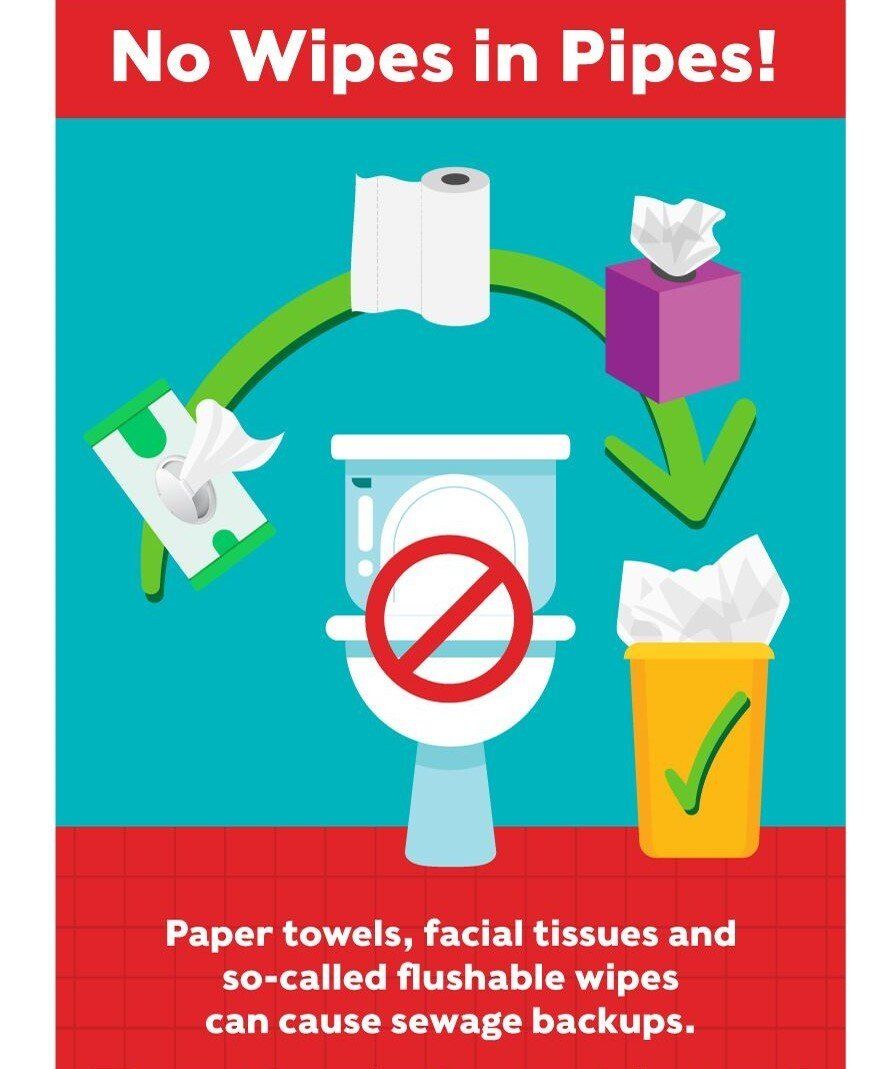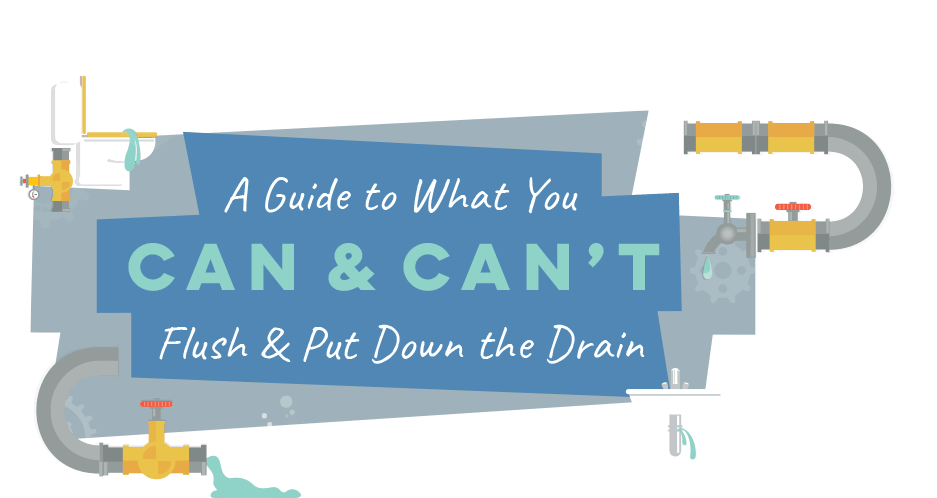No Wipes In The Pipes!
What causes raw sewage to back up in your home or office? Sometimes it’s tree roots or other debris, but most often it is grease and wipes. Together, they cause more than half of our sewer backups and create nasty fatbergs in your pipes that clog your system. They cannot be unblocked by hot water or soap -- they must be removed by a professional.

Prescription Drugs, Over-The-Counter Medications
Keep in mind that sewage is treated and recycled, so we want to keep our wastewater as chemical-free as possible. Our wastewater treatment plants were not designed to remove all those chemicals from the water. The best way to dispose of items like these is to make them undesirable, such as crushing them and then mixing with coffee grounds, kitty litter or dirt before sealing them in a plastic bag and disposing in the trash.
Kitty Litter
(especially clay kitty litter) will sooner or later clog your pipes, even the ones that claim to be “flushable.” Far more problematic is Toxoplasmosis, a parasite found in cat waste that is harmful to marine biology. It’s better to keep your cat waste out of wastewater and just put it in the trash.
Fats, Oils and Grease (FOG)
FOG's should never be poured down the sink or garbage disposal. FOG sticks to the interior surface of the sewer pipes, hardens over time and eventually may cause sewage to backup and lead to a sewage spill in your home or on our streets. Running hot water as you pour the grease down the drain will not help either. Many people are unaware that pouring hot water and detergent down the drain only breaks up grease temporarily. The best way to get rid of FOG is to let it cool/harden, mix it with other absorbent materials, place it in a bag or container and then throw it in the trash. Remember to put FOG where it belongs.
Food
Food should not be flushed down the sink. The best way to get rid of food is to compost what you can and wipe or scrape the remnants in the trash. Use a drain screen in your sink to catch any remaining bits of food as you wash the dishes. Use your garbage disposal sparingly. Using the drain as a dump will have unforeseen consequences of clogging sewer lines and possible backups in your home.
Coffee grounds and eggshells
Coffee grounds and Eggshells should be properly disposed of in the trash. Never put them in the garbage disposal. Crushed eggshells and coffee grounds can also be used for making garden compost.
Household hazardous materials
Hazardous materials such as motor oil, pesticides, paint and solvents should never be poured down the drain. All of these are highly toxic and will cause long term damage to the environment. Dispose of these items by contacting the nearest household hazardous waste collection center where these and other household items can be dropped off. If there is just a little unused paint left, put the can in a safe place (inaccessible to children, pets, or ignition sources) and remove the lid so the remaining contents can dry out. Once the contents have dried out, replace the lid and dispose of the can in the trash or recycler.
Hair
Hair always seems to make its way past the plug. Hair will catch and stick to other items and is very difficult to get out of piping once it gets in. Keep hair from going into the pipes by using a fine drain screen to catch hair in your bathtub and shower and dispose of it properly in the trash.



